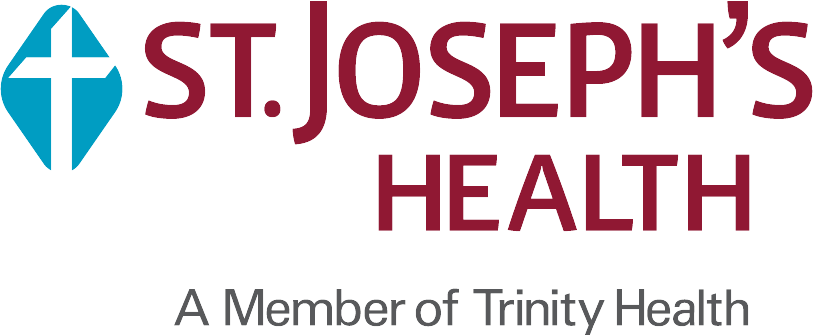The CNY Regional Center for Tobacco Health Systems at St. Joseph’s Health Applauds FDA's Historic Move Towards Menthol Ban for a Healthier Tomorrow
December 6, 2023 SYRACUSE, N.Y.— The CNY Regional Center for Tobacco Health Systems at St. Joseph’s Health celebrates the significant step taken by the U.S. Food and Drug Administration (FDA) to advance the proposed ban on menthol cigarettes and flavored cigars, both of which attract and addict our youth to nicotine. Half of children ages 12-17 who smoke are using menthol cigarettes. The FDA’s action aligns seamlessly with the Center’s mission to champion a smoke-free future.
SYRACUSE, N.Y.— The CNY Regional Center for Tobacco Health Systems at St. Joseph’s Health celebrates the significant step taken by the U.S. Food and Drug Administration (FDA) to advance the proposed ban on menthol cigarettes and flavored cigars, both of which attract and addict our youth to nicotine. Half of children ages 12-17 who smoke are using menthol cigarettes. The FDA’s action aligns seamlessly with the Center’s mission to champion a smoke-free future.
The FDA transferred its proposed rules, aimed at banning menthol cigarettes and flavored cigars, to the White House Office of Management and Budget at the end of October—the pivotal final step before potential approval. This move has far-reaching implications for tobacco cessation efforts and the pursuit of a healthier society.
“This impactful initiative has the potential to significantly decrease smoking rates, especially within vulnerable communities, and underscores the importance of creating an environment that encourages healthier choices,” said Kristen Richardson, director of the CNY Regional Center for Tobacco Health Systems at St. Joseph’s Health. “We stand prepared to provide support and resources to people aiming to break free from these harmful products."
For decades, the tobacco industry has aggressively marketed menthol-flavored products to specific communities, leading to disproportionate rates of death and disease in these groups.
“Since the 1950s, the tobacco industry has been actively promoting menthol-flavored cigarettes to Black Americans and has resulted in a rise in Black smokers,” said Richardson. “The FDA’s proposed ban presents the opportunity to reduce health disparities among the Black community where 85% of those who smoke, smoke menthol.”
The LGBTQIA+ community has also been targeted by these campaigns. According to the Truth Initiative, these young adults are nearly twice as likely to use tobacco as their non-LGBTQIA+ peers.
Tobacco Free New York State’s It’s Not Just campaign aims to raise awareness of the disproportionate impact menthol tobacco products and the tobacco industry’s marketing tactics have on the African American and LGBTQIA+ communities, and on youth.
“It’s alarming that 280,000 of New York’s youth now under 18 are projected to die prematurely from smoking,” said Richardson. “It’s crucial that we do everything we can to make tobacco less appealing to them. We implore lawmakers to approve the menthol ban.”
About St. Joseph’s Health
St. Joseph’s Health, a non-profit health care system in Syracuse, NY, has been a trailblazer in the field since 1869, when it became the city’s first public hospital. Its commitment to exceptional care is evident in a network of primary, specialized, and partner care facilities, providing a range of services to promote long-term health in the communities we serve. St. Joseph’s has been ranked by Consumer Reports among the top 15 heart surgery centers in the country, is a designated Primary Stroke Center, and is consistently named a Best Regional Hospital and #1 in the Syracuse Metro area by US News and World Report. St. Joseph’s Health is dedicated to excellence, innovation, and compassionate patient care. From pioneering ambulance services in Syracuse to being the first in Central New York to use DaVinci robotic surgery technology in an outpatient facility, St. Joseph’s legacy of firsts demonstrates its ongoing commitment to leading medical advancements. Affiliated with St. Joseph’s Physicians and a member of Trinity Health, St. Joseph’s Health is your trusted partner in health, combining a rich history with a forward-thinking approach to ensure the health and well-being of our communities.
About Trinity Health
Trinity Health is one of the largest not-for-profit, Catholic health care systems in the nation. It is a family of 115,000 colleagues and nearly 26,000 physicians and clinicians caring for diverse communities across 25 states. Nationally recognized for care and experience, the Trinity Health system includes 88 hospitals, 131 continuing care locations, the second largest PACE program in the country, 125 urgent care locations and many other health and well-being services. Based in Livonia, Michigan, its annual operating revenue is $20.2 billion with $1.2 billion returned to its communities in the form of charity care and other community benefit programs.
